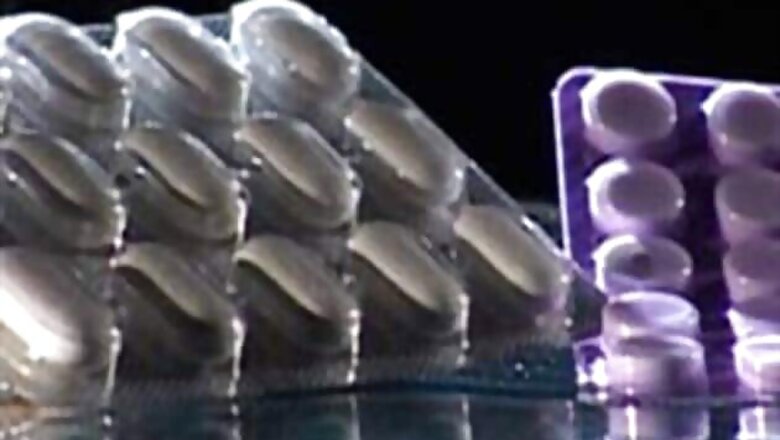
views
Washington: Indian pharma major Ranbaxy faces the possibility of a permanent injunction, which requires it to make fundamental changes to its plants both in the US and India and would prevent it from manufacturing drugs at certain facilities in the US.
This follows the US Justice Department's unprecedented action in filing a ground-breaking consent decree in a court in Maryland at the request of the Food and Drug Administration.
"This action against Ranbaxy is ground-breaking in its international reach - it requires the company to make fundamental changes to its plants in both the US and India," said Tony West, Assistant Attorney General for the Justice Department's Civil Division.
"Our commitment to ensuring that the drugs the American people rely on are safe, effective and manufactured according to the FDA's standards extends beyond our borders," West said.
The consent decree filed on Wednesday is unprecedented in its scope and requires Ranbaxy to take a wide range of actions to correct its violations and ensure that they do not happen again, said the Justice Department.
Among other things, the decree seeks to prevent Ranbaxy from manufacturing drugs for the US market at certain of its facilities until they can do so according to US standards.
Meanwhile, Ranbaxy in a statement in New Delhi said that under the terms of the consent decree, which it signed on December 20 last year, it is committed to further strengthening procedures and policies to ensure data integrity and to comply with current good manufacturing practices.
"Today's announcement is the next step in the process of finalising our agreement with the FDA to resolve this legacy issue," Ranbaxy CEO and Managing Director Arun Sawhney said in the statement.
The consent decree requires Ranbaxy to hire an outside expert to conduct a thorough internal review at the affected facilities and to audit applications containing data from those facilities, withdraw any applications found to contain false data.
It also requires the pharma company to set up a separate office of data reliability within Ranbaxy and hire an outside auditor to audit the affected facilities in the future, the Justice Department said.
These are part of a wide range of actions to correct its violations and ensure that they do not happen again, it added.
Ranbaxy's Paonta Sahib, Batamandi and Dewas facilities in India have been on FDA import alert since 2008 and Ranbaxy has closed its Gloversville facility. The USFDA had banned 30 generic drugs produced by Ranbaxy at these three units, citing gross violation of approved manufacturing norms.
In the same year, the US Department of Justice had also moved a motion against the company in a local court alleging forgery of documents and fraudulent practice.
The consent decree prevents Ranbaxy from manufacturing drugs for introduction to the US market and for the President's Emergency Plan for AIDS Relief Programme at the Paonta Sahib, Batamandi, Dewas and Gloversville facilities until drugs can be manufactured at such facilities in compliance with US manufacturing quality standards, the USFDA said in a statement.
"Because this company continued to violate current good manufacturing practice regulations and falsify information on drug applications, the FDA took these actions in an effort to protect consumers," FDA Associate Commissioner for Regulatory Affairs Dara Corrigan said.
The USFDA said Ranbaxy has agreed to relinquish any 180-day marketing exclusivity that it might have for three pending generic drug applications.
The company has further agreed to relinquish any 180-day marketing exclusivity that it may have for several additional generic drug applications if it fails to meet certain decree requirements by specified dates, it added.
The consent decree also contains damages provisions to cover many potential violations of the law and the decree.
"If defendants distribute any drug from the facilities covered by the decree, Ranbaxy shall pay liquidated damages equal to two times the retail value of such drug, not to exceed $10 million in any one calendar year," USFDA said.
Further, if the company submits an untrue statement in connection with any application filed with the FDA, Ranbaxy shall pay up to $3 million in liquidated damages for each such statement, not to exceed 30 million dollars in any one calendar year, the USFDA added.
Once the consent decree is approved by the court, it becomes a court order with which Ranbaxy must comply or face contempt. "Submitting false data to the FDA in drug applications will not be tolerated," said West.
"The Department of Justice, in partnership with the FDA, will use all available tools, including civil injunction actions and consent decrees, to ensure the integrity of drug applications and to ensure that all drugs sold in the US meet US standards," he added.
Through investigation by the department and the FDA, the US government said it uncovered numerous problems with Ranbaxy's drug manufacturing and testing facilities in India and at units owned by its US subsidiary, Ranbaxy Inc.
These problems included failure to keep written records showing that drugs had been manufactured properly and failure to investigate evidence indicating that drugs did not meet their specifications, the Justice Department said.
The company also failed to adequately separate the manufacture of penicillin drugs from non-penicillin drugs in order to prevent cross-contamination. It also failed to have adequate procedures to prevent contamination of sterile drugs, it added.
Ranbaxy also conducted inadequate testing of drugs to ensure they kept their strength and effectiveness until their expiration date, the department alleged.



















Comments
0 comment